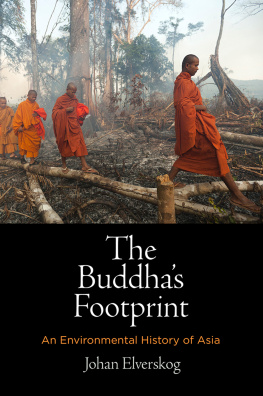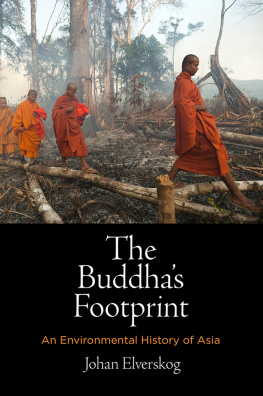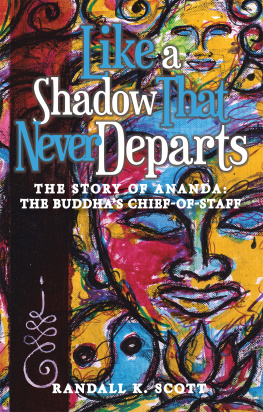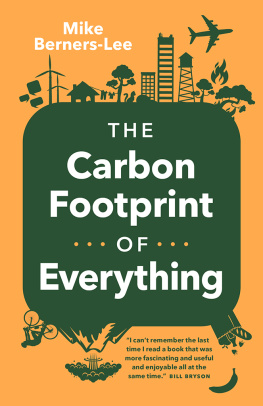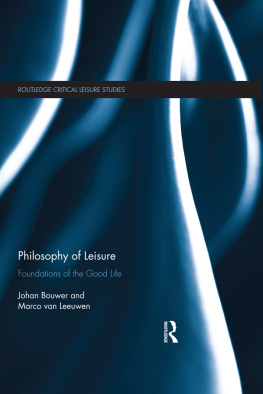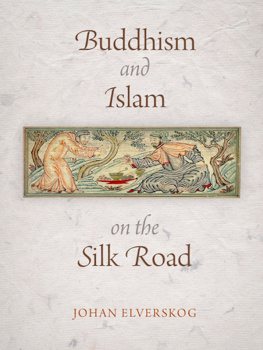Johan Elverskog - The Buddhas Footprint
Here you can read online Johan Elverskog - The Buddhas Footprint full text of the book (entire story) in english for free. Download pdf and epub, get meaning, cover and reviews about this ebook. year: 2020, publisher: LightningSource, genre: Religion. Description of the work, (preface) as well as reviews are available. Best literature library LitArk.com created for fans of good reading and offers a wide selection of genres:
Romance novel
Science fiction
Adventure
Detective
Science
History
Home and family
Prose
Art
Politics
Computer
Non-fiction
Religion
Business
Children
Humor
Choose a favorite category and find really read worthwhile books. Enjoy immersion in the world of imagination, feel the emotions of the characters or learn something new for yourself, make an fascinating discovery.
- Book:The Buddhas Footprint
- Author:
- Publisher:LightningSource
- Genre:
- Year:2020
- Rating:3 / 5
- Favourites:Add to favourites
- Your mark:
- 60
- 1
- 2
- 3
- 4
- 5
The Buddhas Footprint: summary, description and annotation
We offer to read an annotation, description, summary or preface (depends on what the author of the book "The Buddhas Footprint" wrote himself). If you haven't found the necessary information about the book — write in the comments, we will try to find it.
The Buddhas Footprint — read online for free the complete book (whole text) full work
Below is the text of the book, divided by pages. System saving the place of the last page read, allows you to conveniently read the book "The Buddhas Footprint" online for free, without having to search again every time where you left off. Put a bookmark, and you can go to the page where you finished reading at any time.
Font size:
Interval:
Bookmark:

The Buddhas Footprint
ENCOUNTERS WITH ASIA
Victor H. Mair, Series Editor
Encounters with Asia is an interdisciplinary series dedicated to the exploration of all the major regions and cultures of this vast continent. Its timeframe extends from the prehistoric to the contemporary; its geographic scope ranges from the Urals and the Caucasus to the Pacific. A particular focus of the series is the Silk Road and all its ramifications: religion, art, music, medicine, science, trade, and so forth. Among the disciplines represented in this series are history, archaeology, anthropology, ethnography, and linguistics. The series aims particularly to clarify the complex interrelationships among various peoples within Asia, and also with societies beyond Asia.
A complete list of books in the series is available from the publisher.
THE BUDDHAS FOOTPRINT

An Environmental History of Asia
Johan Elverskog

UNIVERSITY OF PENNSYLVANIA PRESS
PHILADELPHIA
Copyright 2020 University of Pennsylvania Press
All rights reserved. Except for brief quotations used for purposes of review or scholarly citation, none of this book may be reproduced in any form by any means without written permission from the publisher.
Published by
University of Pennsylvania Press
Philadelphia, Pennsylvania 19104-4112
www.upenn.edu/pennpress
Printed in the United States of America on acid-free paper
1 3 5 7 9 10 8 6 4 2
Library of Congress Cataloging-in-Publication Data
Names: Elverskog, Johan, author.
Title: The Buddhas footprint : an environmental history of Asia / Johan Elverskog.
Other titles: Encounters with Asia.
Description: 1st edition. | Philadelphia : University of Pennsylvania Press, [2020] | Series: Encounters with Asia | Includes bibliographical references and index.
Identifiers: LCCN 2019035099 | ISBN 978-0-8122-5183-8 (hardcover)
Subjects: LCSH: BuddhismAsiaHistory. | Human ecologyAsiaHistory. | NatureEffect of human beings onAsiaHistory. | Environmental ethicsAsiaHistory. | AsiaCivilizationBuddhist influences.
Classification: LCC BQ4570.E23 E47 2020 | DDC 294.3/377095dc23
LC record available a https://lccn.loc.gov/2019035099
For Sebastian
Contents


Figure 1. Three snow-leopard-skin backpacks (Bumthang, Bhutan, 1991).
Photo by author.
Preface

Everyone likes Buddhism.
Donald S. Lopez Jr., From Stone to Flesh
The origins of this book partly reside in a matching set of backpacks that I came across in Bhutan in the early 1990s. They sat on the floor of a home next to a jug of chang, homemade millet beer. They were covered with the skin of a snow leopard, and I was shocked that Buddhists would so casually carry bags made from one of the most endangered animals on the planet.
I had recently graduated from college in Berkeley, where the environmental movement was strong and the vision of Buddhism as ecologically principled was taken for granted. I had fallen for all of it. I still remember buying my copy of Allan Badiners Dharma Gaia at the Black Oak Bookstore on Shattuck Avenue and dutifully absorbing its collected wisdom about the intrinsic connections between Buddhism and deep ecology. These works drew me to the study of the Dharma, and, more specifically, to the Himalayan region, where I traveled after graduation.
The sight of these snow leopard backpacks caused no small amount of consternation since I believed that Buddhism was an inherently environmental religion. Everything I had read about the Dharmaespecially its engagement with the natural worldhad taught me that Buddhism was in tune with modern progressive sensibilities as well as deep ecology. When I saw this matching set of Louis Vuitton-like backpacks carelessly thrown to the floor, it forced me to rethink some of my basic understandings about Buddhism and what has conventionally become known as eco-Buddhism.
Over the last twenty years, postcolonial scholarship has amply documented how this modern Buddhism came about and in so doing has challenged many of the popular preconceptions about Buddhism.
And, last but not least, especially withering scrutiny has been brought to bear on the basic presumptions of eco-Buddhism. The idea that the Buddhamuch less all of the teachings relegated under the category Buddhismtaught something akin to modern environmentalism has been shown to be
How then did the idea of eco-Buddhism develop, and why is the new scholarly consensus about its inaccuracy not more broadly understood? The development of the discourse that sees Buddhism as a good religion is complicated. In part it derives from the classic orientalist paradigm whereby the West is male, active, and practical and the East is feminine, passive, and intuitive. Such binary thinking has been utilized to explain and justify Western domination with its presumed superiority. But at the same time certain Western intellectuals also used this same orientalist paradigm to criticize their own societies. The German Romantics and American Transcendentalists, for example, lauded Asian religions for being more in tune with the natural world than Christianity.
Such ideas are so pervasive that they often appear as a sort of common sense. In an attempt to tear down the human-animal divide, the ethicist Peter Singer resorts to the orientalist paradigm: It is true that Western thinking emphasizes the gulf between humans and nature, and also between humans and animals, to a far greater extent than Eastern thinking. But perhaps no example can make my point better than the entry for Buddhism in the recent Encyclopedia of World Environmental History:
The basic precepts and philosophy of Buddhism tend to encourage a sensitive approach to the environment. The whole approach of Buddhism is designed to eliminate suffering, and hence Buddhism discourages any action that might harm living things. Buddhists tend to be mindful of their actions in the natural world, and so would not thoughtlessly saw down a tree or pull up plants without very careful consideration. They would be equally thoughtful with regard to animals, and would tend not to use resources from the natural world without careful thought. Indeed, Buddhists would normally only wish to use resources to the extent required to sustain life. The excessive use of resources, particularly to make money, would be regarded as a form of greed and desire. The Buddhist attitude would preclude excessive mining for minerals, the destruction of forests for building purposes, or the pollution of rivers with industrial waste.
As The Buddhas Footprint will show in detail, this description is thoroughly inaccurate historically. I quote it at length to emphasize how pervasive the eco-Buddhist discourse is. The worlds leading environmental historians who wrote and advised the Encyclopedia should know better, but somehow they do not.
Indeed, if the last fifty years of environmental history has taught us anything it is that humans exploit the environment for their own ends.
When I first publicly presented some of my work on this topicironically enough in BerkeleyI was not surprised when a gentleman in the audience asked me: Do you want to be the Grinch who stole Buddhism? Although he asked the question with humor, he suggested that I was the first to challenge the popular image of the Dharma as inherently environmental and that, as such, I was robbing people of their comforting view of Buddhism. Yet, as I have noted, that is not the case. Scholars have made this argument repeatedly over the past twenty years, and yet unfortunately their work has done little to change popular perceptions of Buddhism. If we have stolen Buddhism, the Whos down in Whoville have not minded.
Next pageFont size:
Interval:
Bookmark:
Similar books «The Buddhas Footprint»
Look at similar books to The Buddhas Footprint. We have selected literature similar in name and meaning in the hope of providing readers with more options to find new, interesting, not yet read works.
Discussion, reviews of the book The Buddhas Footprint and just readers' own opinions. Leave your comments, write what you think about the work, its meaning or the main characters. Specify what exactly you liked and what you didn't like, and why you think so.

